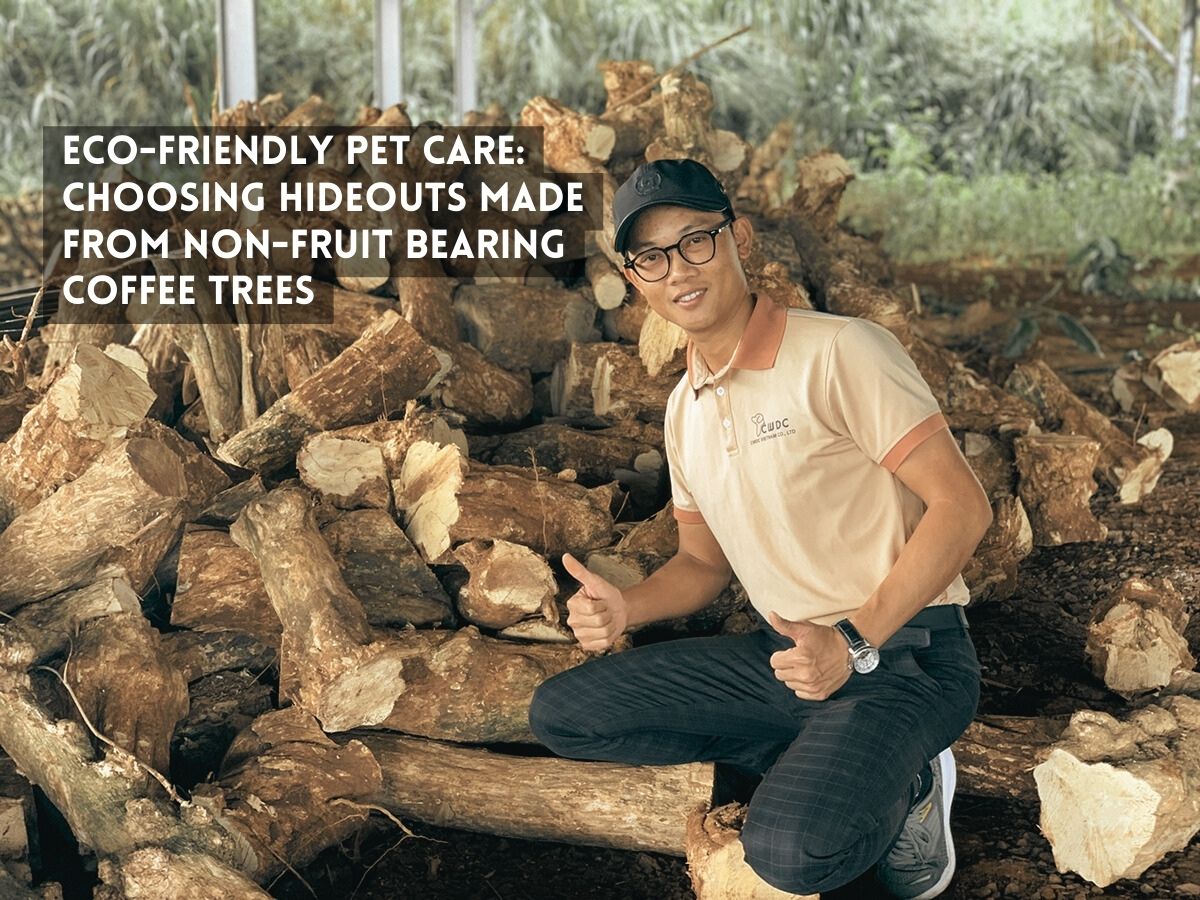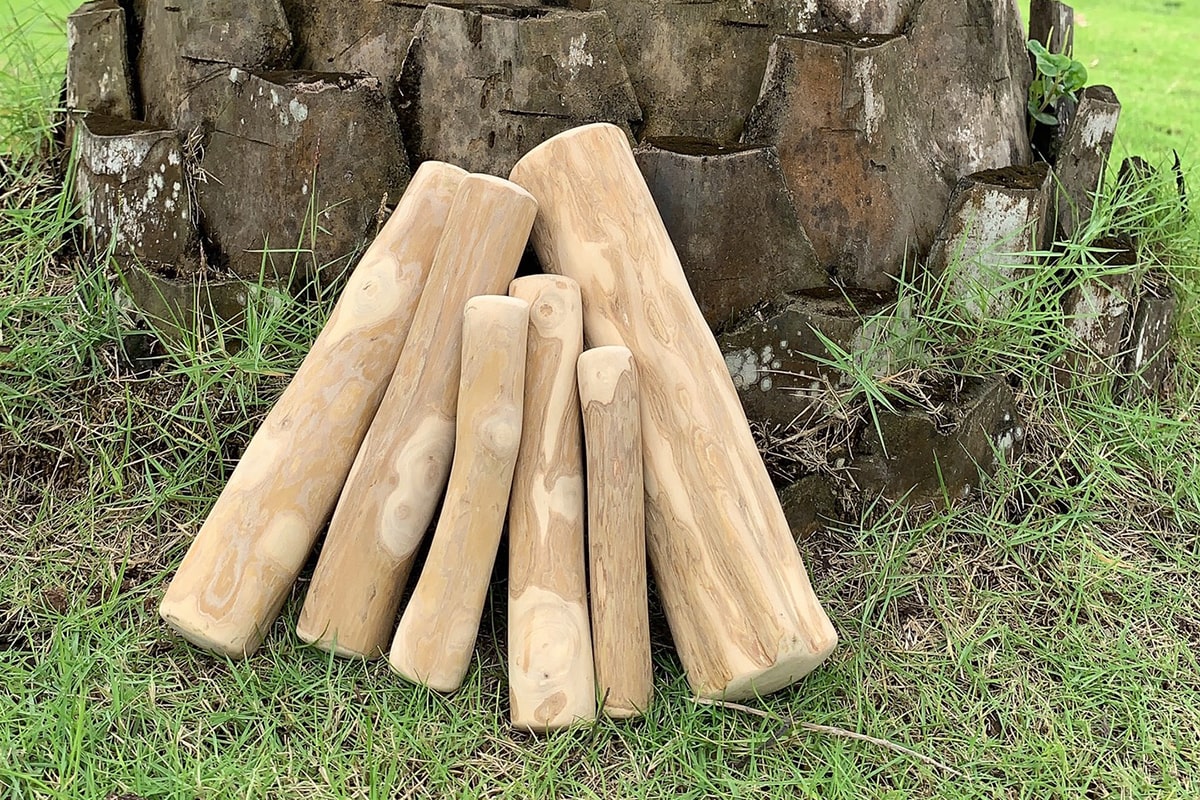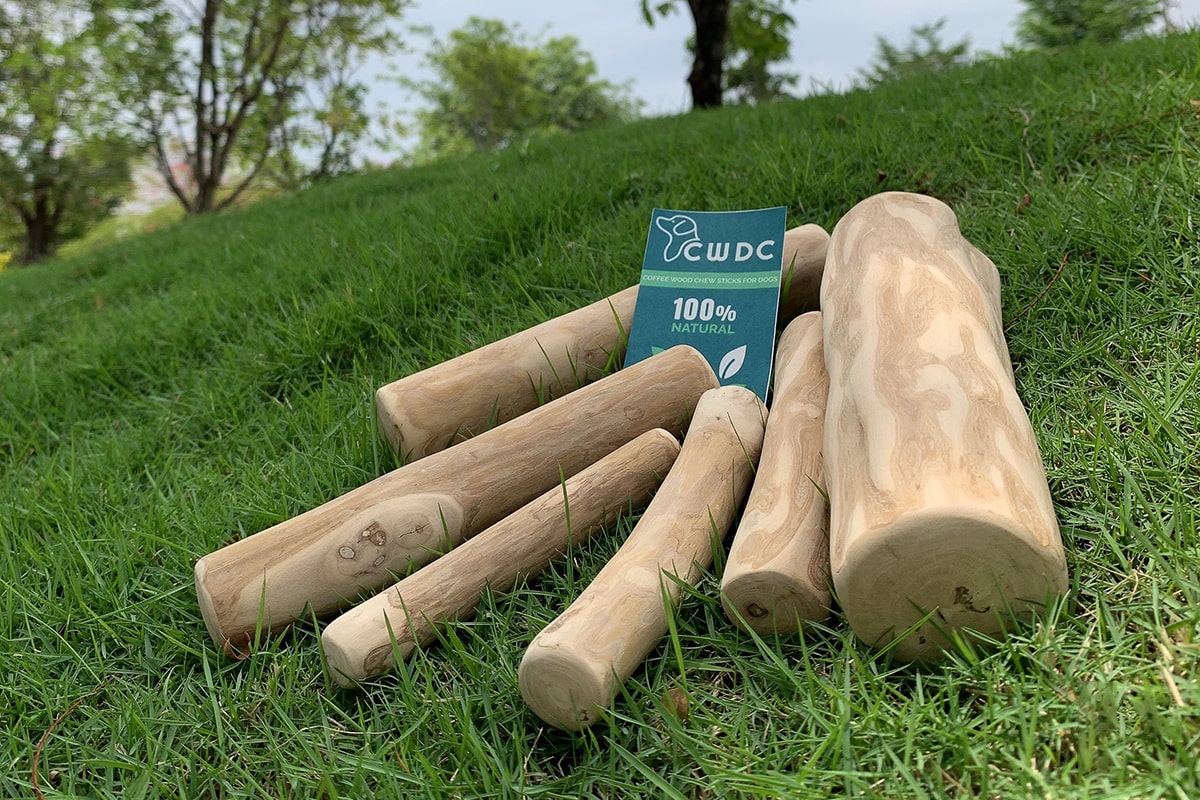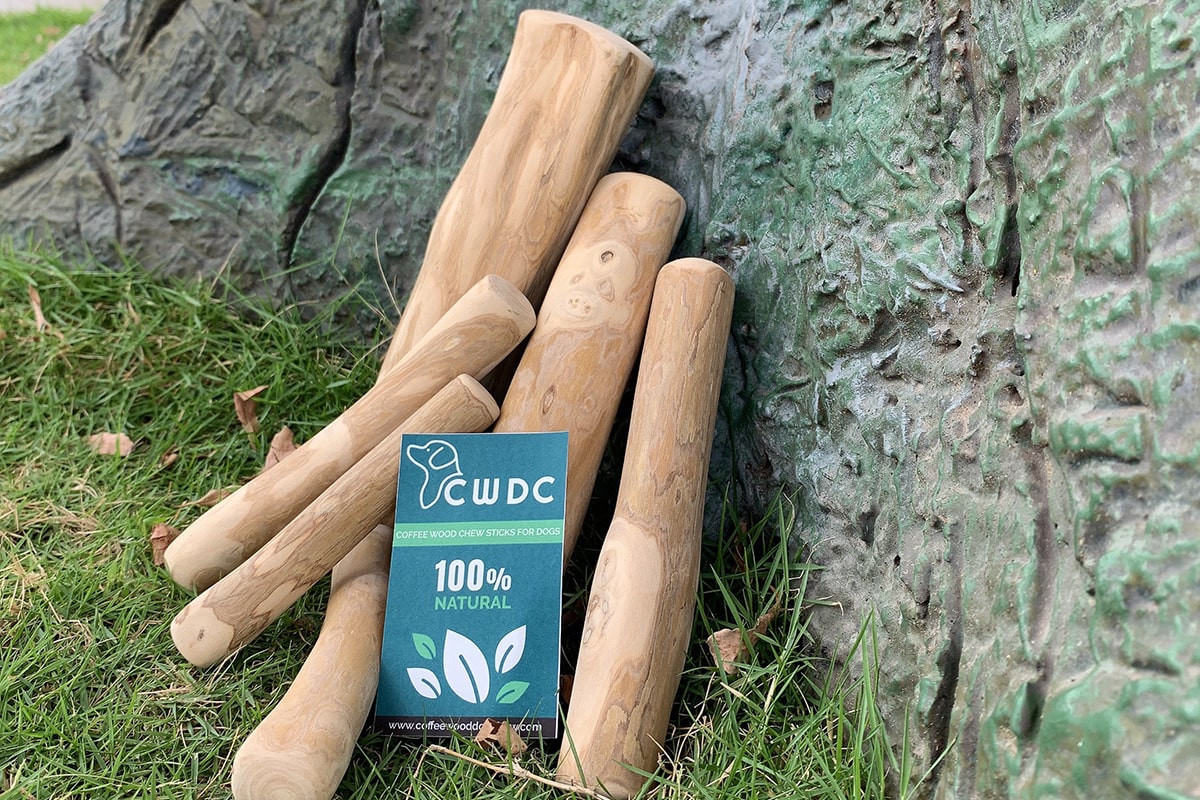Modern pet owners are increasingly aware that the choices they make for their animals also reflect their impact on the planet. This awareness has given rise to eco-friendly pet care, where products are not only safe and functional for animals but also sustainably sourced and environmentally responsible. One of the most compelling examples of this shift is the use of hideouts made from non-fruit-bearing coffee trees, a practice that combines natural beauty, animal well-being, and environmental stewardship.
1. The lifecycle of a coffee tree and sustainable sourcing
Coffee trees produce beans for a limited period of their lives, typically peaking in yield around 20–25 years. Beyond this stage, older trees become less productive and are often cleared to make room for younger, more vigorous plants. Instead of discarding or burning this hardwood, which would contribute to waste and carbon emissions, CWDC Vietnam repurpose it into pet-safe products such as Java wood tunnels and hideouts. This practice transforms agricultural by-products into valuable, long-lasting enrichment tools.
2. Why repurposed wood benefits the environment
- Reduces waste: By reusing wood that would otherwise be discarded, the environmental footprint of coffee farming is lowered.
- Carbon-conscious choice: Repurposing wood locks in carbon instead of releasing it through burning or decay.
- Minimizes synthetic demand: Every natural hideout chosen over a plastic or resin alternative reduces reliance on fossil-fuel-based materials.
- Supports circular economy: Farmers benefit economically from selling retired trees, while pet owners gain a sustainable product.
3. Animal welfare and eco-friendly design go hand-in-hand
Eco-friendly doesn’t just mean green; it also means better welfare for animals. Hideouts crafted from coffee wood provide:
- Chemical-free surfaces: Safe for chewing, climbing, or burrowing.
- Natural textures and hollows: Encouraging instinctive behaviors.
- Stress-reducing retreats: Mirroring natural habitats with shade and seclusion.
Thus, the eco-conscious choice doubles as the welfare-conscious choice.
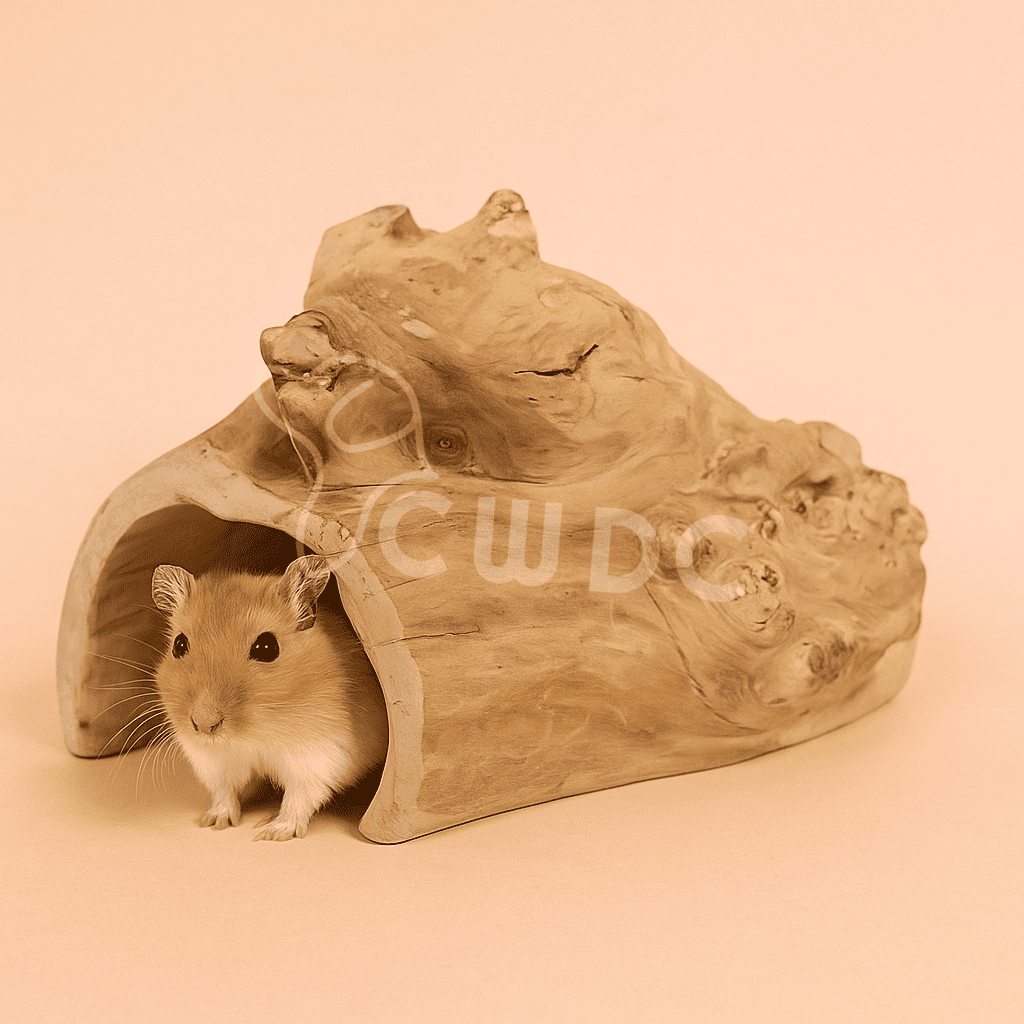
4. What makes coffee wood unique for hideouts
Compared to other hardwoods, coffee wood is dense yet workable, full of natural knots, branches, and hollows that make it ideal for pet use. No two hideouts are identical, each is a one-of-a-kind piece of natural design, offering both functional refuge and visual appeal.
5. Guidance for eco-friendly buyers
When choosing Java wood hideouts made from coffee trees:
- Look for assurances of untreated, chemical-free wood.
- Ask about pest-treatment processes to ensure safety.
- Select the right size and shape for your pet’s species and behavior.
- Support brands that work directly with coffee farmers, ensuring fair trade and transparency.
6. A small choice, a big impact
Choosing a hideout made from a non-fruit-bearing coffee tree may seem like a small decision, but it reflects a powerful trend in eco-friendly pet care. It’s a way for pet owners to give their animals safe, enriching habitats while actively participating in sustainable practices. Each hideout tells a story, providing comfort and security to a hamster, reptile, or other cherished pet.
Conclusion
Eco-friendly pet care isn’t just about reducing waste or avoiding chemicals, it’s about aligning the needs of our pets with the health of our planet. Hideouts made from non-fruit-bearing coffee trees embody this philosophy perfectly, offering durability, safety, and natural beauty while reducing environmental impact. By choosing these sustainable products, pet owners support a cycle of renewal and responsibility, one that benefits animals, farmers, and the Earth alike.
Related Posts:
- Java (Coffee) Wood Tree Bird Perch / Artificial Java (Coffee) Tree Plant for Home Decor Indoor or Outdoor Office…
- Why CWDC Vietnam Believes Coffee Wood Dog Chews Will Be the Most Sought-After Toy in the Coming Years?
- The Economic Value of Aged Coffee Wood and Its Rising Demand
- Natural Beauty Meets Function: The Unique Appeal of Java Wood Tunnels and Hideouts
- Are coffee wood chews safe for dogs ? A Comprehensive Look
- The Future of Sustainable Pet Products: Why Coffee Wood Chews Are Leading the Way




